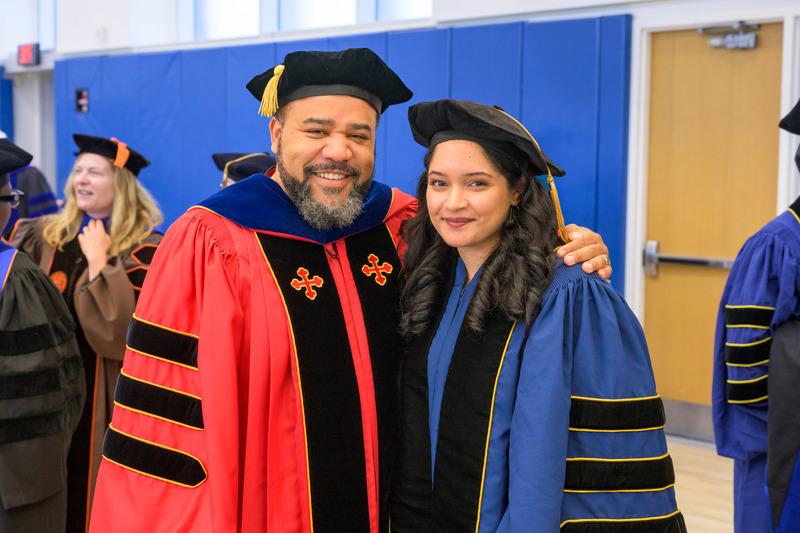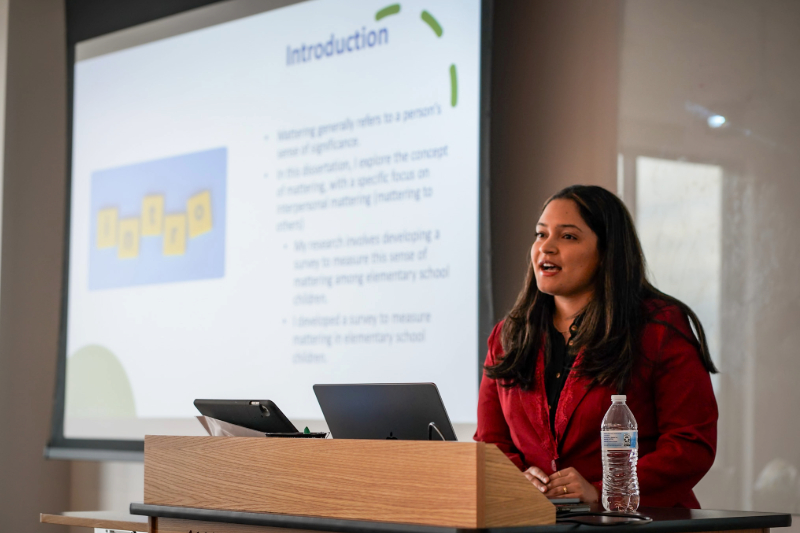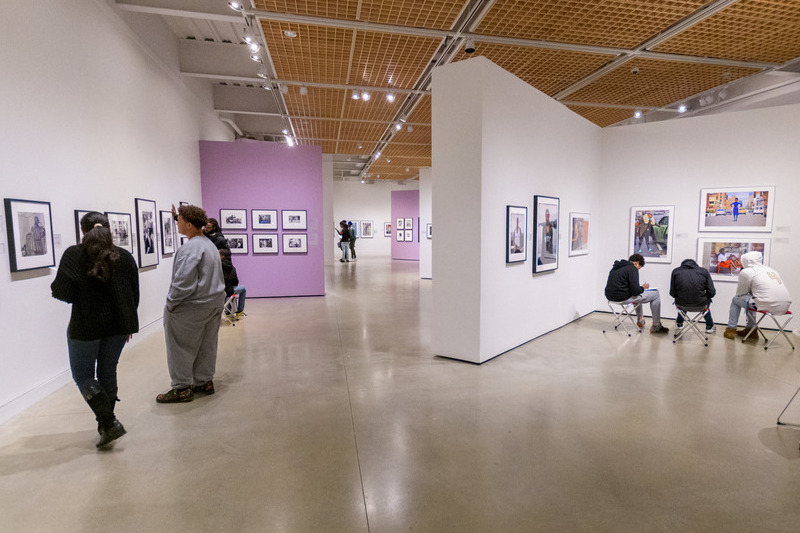


Showing students they matter
Photos by Evan Krape and courtesy of Roderick L. Carey June 04, 2025
Recent doctoral graduate plans to help elementary children feel seen, heard and valued in their school communities
For recent University of Delaware doctoral graduate Camila Polanco, school was one of the first places where she learned how much it matters to feel seen, heard and valued — not only as a student, but as a whole person. After graduating in May, Polanco now hopes to use her dissertation work to help elementary school children feel that they matter in their school communities, too.
“Academics are important of course, but what often stays with us the most are the relationships we developed in school and the moments of feeling seen and supported, especially in those years when kids are still figuring out who they are,” said Polanco, who earned a doctorate in human development and family sciences (HDFS) from UD’s College of Education and Human Development. “My dissertation work taught me how much we can underestimate young people’s voices and how important it is to create space for them to be heard.”
Polanco’s educational journey
After earning her undergraduate degree in psychology at La Salle University, Polanco accepted a position as a clinical research assistant at Children’s Hospital of Philadelphia. Polanco learned how much she enjoyed school-based research, especially projects that focused on student wellbeing. She began to consider graduate school, but didn’t know what to expect.
“As the daughter of two parents who immigrated from the Dominican Republic and a first-generation college student, I didn’t have direct examples of people in my personal life pursuing graduate school,” Polanco said. “My parents worked hard to give me opportunities they didn’t have, especially after navigating language barriers and other challenges as they built a life here. That pushed me to work hard, but it also meant I had to figure a lot of this out on my own.”

Polanco landed in the Ph.D. in HDFS program, housed in CEHD’s Department of HDFS. There, she learned about Associate Professor Roderick L. Carey’s research on mattering, which seeks to understand how adolescents and young people from underrepresented backgrounds conceptualize their worth and sense of belonging in school settings.
“Dr. Carey’s work on mattering and the college-going process felt like a perfect fit,” Polanco said. “Mattering, as a construct, really spoke to me because it put language to something I had felt but never knew how to describe. What surprised me most was how much I connected with the students we interviewed, especially the ones who started off quiet or shy. As someone who’s naturally pretty shy myself, it was powerful to watch them open up and share really thoughtful insights about their school experiences.”
Polanco became one of Carey’s first research assistants on the Black Boy Mattering Project, helping him grow the number of participants from 17 boys to over 50 adolescents. She identifies working on this project as one of her most meaningful CEHD experiences, remembering a field trip they took to the Delaware Art Museum in early 2020. There, the boys created self-portraits as part of an art activity.
“What made this art activity even more special was seeing how much the students opened up through this process,” Polanco said. “One student in particular was really shy when we first started working together. But that day, through his art, I saw a completely different side of him. His creativity was brilliant, and after that experience, I noticed him becoming more and more comfortable in his own skin. He kept showing up, participating in our interviews and letting his voice be heard. Seeing that growth over time was really amazing.”

Studying mattering
Polanco’s experience as a research assistant laid the foundation for her own research, which centers on the mattering of young students. Her dissertation study piloted and examined the validity of a newly developed survey designed to capture elementary school students’ sense of worth and belonging. This work offered an accessible and developmentally appropriate tool for working with young children.
“Working with Camila over the past five years has been joyful and incredibly rewarding. She brings both compassion and brilliance to everything she does,” Carey said. “At UD, she developed the skills to engage in deeply humanizing work with children and teachers, while also mastering quantitative tools to explore how schools shape student identities. Her work expands the questions we can ask and how we answer them, offering powerful insights for educators committed to making every student feel that they truly matter.”
In recognition of the value of her work, Polanco received two national dissertation fellowships, including the American Educational Research Association’s Minority Dissertation Fellowship in Education Research and a National Science Foundation Graduate Research Fellowship.
“I’m really grateful to have the opportunity to contribute to something that I hope helps education stakeholders create school environments where every child feels heard,” Polanco said.
To learn more about CEHD research in student experiences, visit its research webpage.
Contact Us
Have a UDaily story idea?
Contact us at ocm@udel.edu
Members of the press
Contact us at mediarelations@udel.edu or visit the Media Relations website

